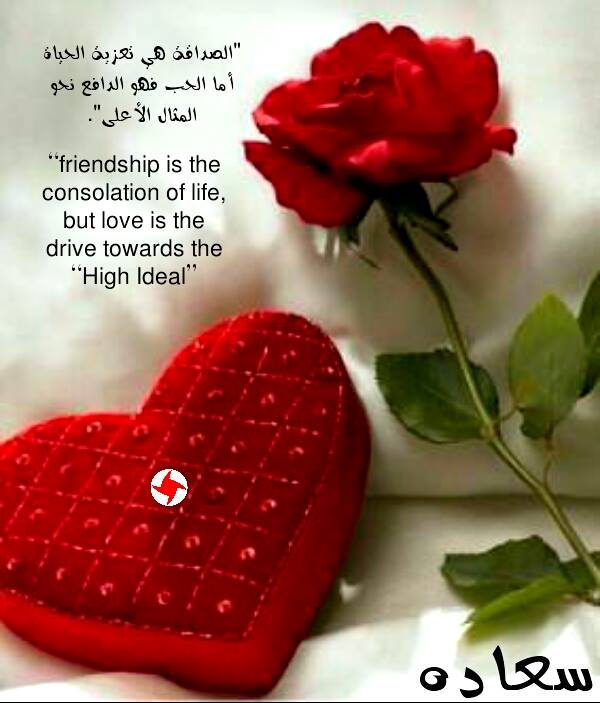Sa´adeh’s vision emanates from love, the essence of life and the strongest form of human energy. Love is a core value and a firm pillar of the beautiful life as envisioned by Sa´adeh. Without it, life would not be beautiful, and people would be unhappy. Our happiness requires love and cannot be complete without it. Celia Haddon argues that without the power of love, “the human individual cannot live happily and healthily.”[1] When love awakens in the heart of man, it generates the solution that life’s happiness requires. From his point of view, Sa´adeh argues: “When man finds love, he finds the essence of life and the strength by which he would overcome all difficulties and triumph over all enemies.”[2] To him, true love is the drive towards the ‘High Ideal’.[3] “It elevates us to approach the higher ideal, and it enables us to endure challenges.”[4] It is not “a mere passion and a temporary surge that soon fades away”,[5] but a cause of joy and beauty of the whole life and the unification of souls in creating this beauty and trying to realize life’s high demands, higher ideals and the common good of the nation. Put differently, love is a unification of souls, “which are determined to stand together or fall together in the struggle against corruption and vices and for the sake of realizing the high ideal and standing up for the absolute right, justice, beauty and love...”[6]
Sa´adeh conceives of love as a potent instrument and effective force for social and collective transformation. He believes that the prevailing of love would generate sincere cooperation and beautiful warmth that saturate life with hope and vitality. In his novella, Fajat Hubb, he spoke about Salim’s aspirations and the revival of the Syrian nation:
The revival of the Syrian nation was necessary for civilization because he felt sure that the features of liberty, peace and love were deeply rooted in his people. Salim did not pursue any political gains but something far loftier and more beneficial than political objects. He believed that a political surge was pointless if not based on a strong soul firmly supported inside every person, male and female, by a living literature and an artistic music that unite the sentiments and rally them around a single, lofty aim until they arrive at a unified social faith based on love. This love, if it were to triumph in the souls of an entire people, would generate sincere cooperation and beautiful warmth that saturate life with hope and vitality. Only then does a political struggle become productive. Patriotic action founded on outmoded and reactionary conventions, on the other hand, remains sterile even if it leads to political liberty.[7]
[1] Celia Haddon. The Powers of Love, London: Michael Joseph Ltd, 1985, p. 175.
[2] Rasa’el Hubb (Love Letters from Antoun Sa´adeh to Edvick Jureidini 1937 – 1938), Beirut: Motion, Publishing & Marketing, 1997, p. 85.
[3]Antun Sa´adeh, As-Sira’ al-Fikri fil-Adab as-Suri, (Intellectual Struggle in Syrian Literature), Beirut: SSNP, 1960., p. 67.
[4] Rasa‟el Hubb (Love Letters from Antoun Sa´adeh to Edvick Jureidini 1937 – 1938), Beirut: Motion, Publishing & Marketing, 1997, p. 95.
[5]Antun Sa´adeh, As-Sira’ al-Fikri fil-Adab as-Suri, (Intellectual Struggle in Syrian Literature), op. cit., p. 171.
[6]Ibid.
[7] Antun Sa´adeh, As-Sira’ al-Fikri fil-Adab as-Suri, op. cit., p. 147. See also Antun Sa´adeh. Qissatan, op. cit., pp. 105-106.

